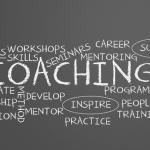
Sales teams are taking and making phone calls all day. They have to respond to a slew of urgent emails. There are often sudden – and potentially challenging – meetings with customers. It’s not the easiest job in which to practice “mindfulness.”
Although it may sometimes begin to seem like a buzzword devoid of real meaning, Psychology Today has defined mindfulness as “a state of active, open attention on the present.” Of course, that’s not always as easy as it sounds, given the often never-ending demands of both our personal and professional lives. For sales pros, though, mindfulness could be seen as a foundation for getting closer to the needs and desire of customers – the reason CRM was created in the first place.
Still not convinced? Maybe some more detail on the business case for mindfulness, some practical how-to and some thoughts on the return on investment might help.
Your Competitor May Already Becoming More Mindful
Studying mindfulness is optional for business workers today, but perhaps not for long. The authors of One Step Ahead: Enhance Your Performance At Work With Mindfulness say 46.9 per cent of the time, our attention wanders from what we’re doing.
For sales teams, that may translate into not listening carefully enough to customers when a potential deal could go either way. It could mean thinking more about your quota and the quarter-end when you need to be concentrating on the particular business objectives of a new prospect. Or it might explain why sometimes, a sales rep might not be acting on valuable data that’s literally right in front of their eyes.
This could be why large companies such as IKEA, Nike and GE are offering mindfulness training, the book says.
Mindfulness Doesn’t Have To Be Expensive Or Time-Consuming
Canadian small and medium-sized businesses might not feel they have enough hours in the day (or allocation in their budget) to fund a comprehensive mindfulness program for sales people. On the flip side, mindfulness is more than just taking an occasional stretch break or staring off into space. A post on Business Insider offered some helpful tips on how to make mindfulness part of your everyday routine. This includes:
- Gratitude: Sales reps might be particularly appreciative when a customer signs a contract, but that’s not the only occasion to give thanks. Getting them on the phone in the first place, or getting a prospect to agree to a meeting, or even getting to work on time can all be reasons to recognize the good things happening around you.
- Positive Affirmations: You might cringe at looking into the mirror and saying, “I’m good enough, I’m smart enough,” so tailor affirmations to what you do as a sales person. “I love getting to know people,” might be a good one to run through your head before stepping into a client meeting, for example. Even better might be “No matter what happens, I’m about to learn something.”
- Thought Tracking: Make a note – either on paper or via a mobile app – every time you complain, criticize or your brain turns towards the negative. Add it up the way you might look at the data on customer interactions in CRM and see what the trends are. The better you measure bad feelings, the better you’ll be able to manage them.
- Behaviour Tracking: Do you tend to fold your arms in front of you when negotiating a contract? Do you lean forward or slouch back when you discuss your products, services and value proposition? Monitor how often you sleep, what you eat or anything else you think contributes – positively or otherwise – to your overall sales performance.
- Highlighting Wins: In sales it’s easy to get focused on the deals that fell through, but every day has some kind of success, even if it’s as little as surviving it. Being intentional about recognizing the good news will make it resonate more deeply in your consciousness.
Measuring Mindfulness ROI
Researchers recently published a story on Harvard Business Review that outlined the results of an employee survey at a company that encouraged meditation, yoga and other mindfulness exercises. “On average, mindfulness participants gained 62 minutes of productivity a week, which is an estimated $3,000-per-employee increase in productivity for the company each year,” the authors noted.
Other possible metrics might be closed deals, customer satisfaction and reduced customer churn. The benefits of mindfulness could be manifold. It’s something more sales teams should think about.
Learn more about CRM here or find out how high-performing sales teams are staying ahead of the curve with Salesforce’s free eBook:


























